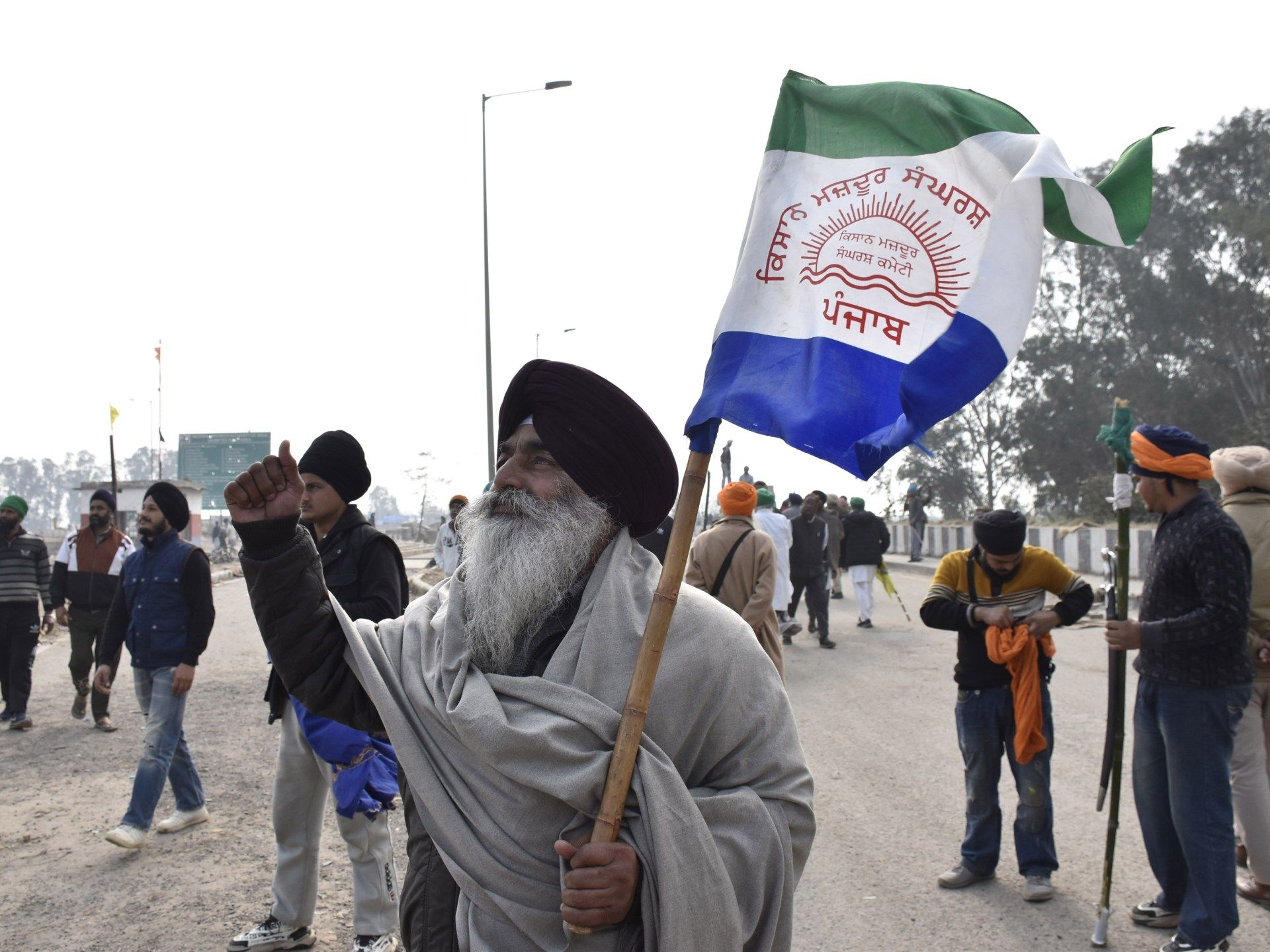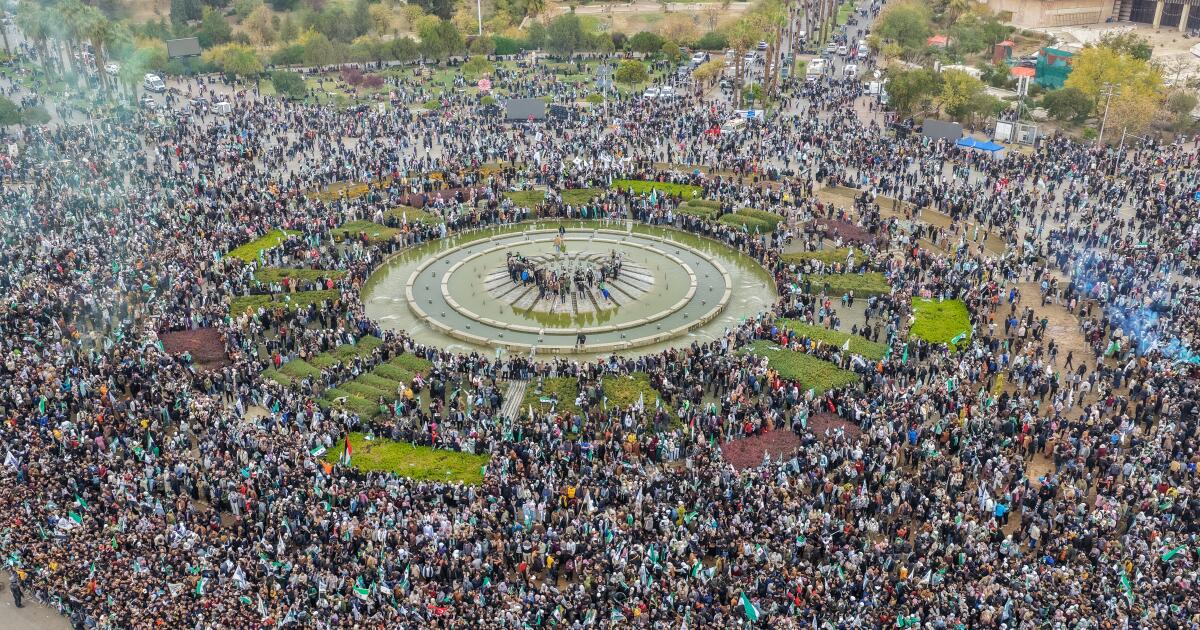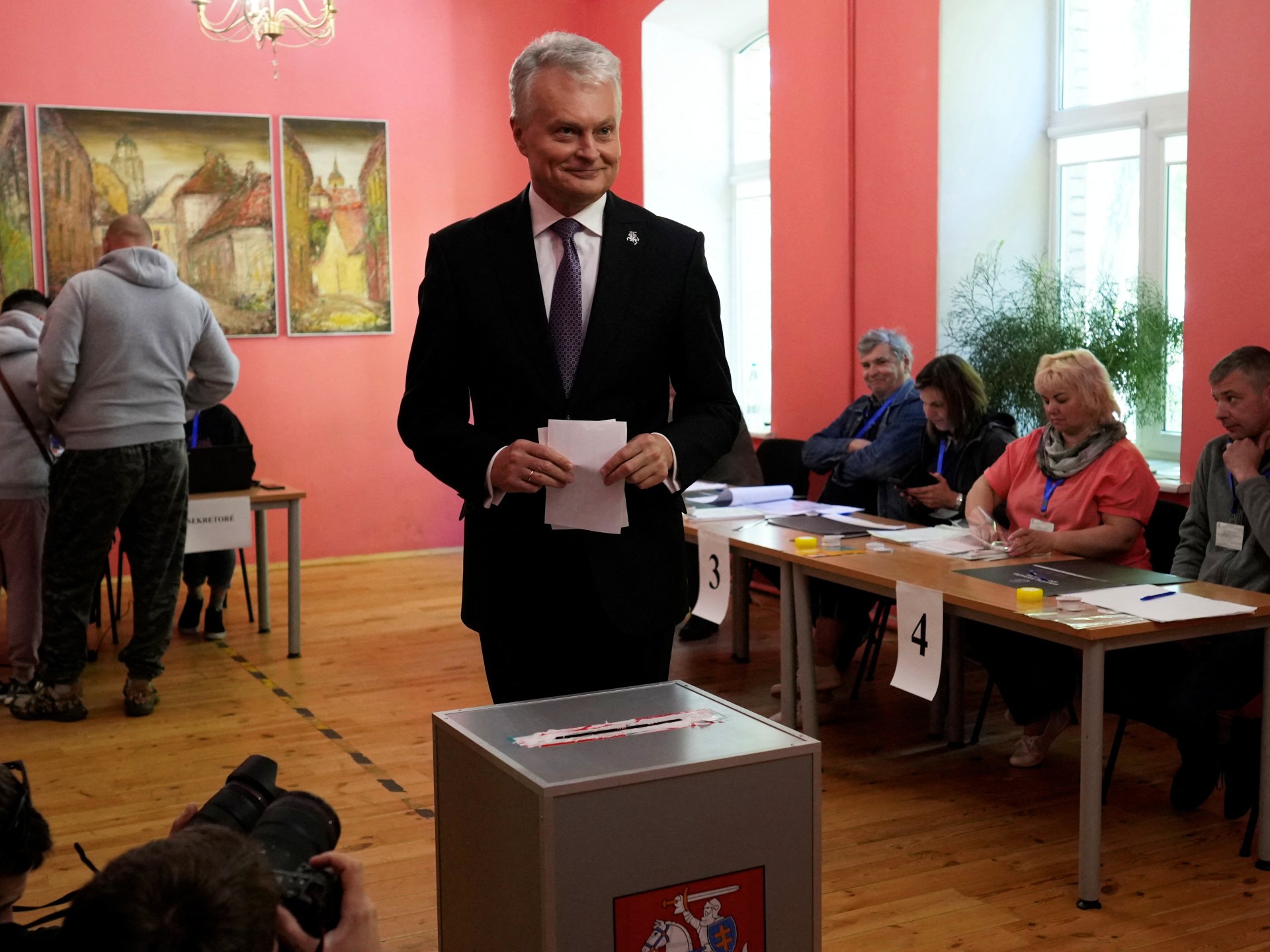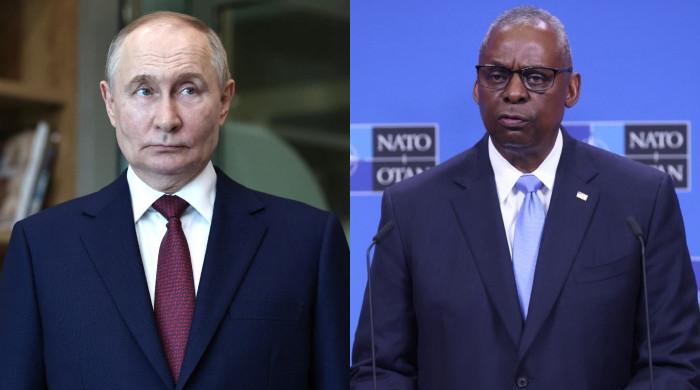Indian farmers who have been protesting for a week to demand guaranteed crop prices have rejected a government proposal and say they will continue their march towards the capital, New Delhi.
Farmers' efforts to reach the city have been blocked by authorities, who have used tear gas and heavy barricades at entry points into New Delhi to prevent a repeat of the 2021 protests, when farmers camped on the outskirts. for more than a year.
On Monday night, leaders of the movement said they rejected the government's offer of a five-year contract with guaranteed prices for a set of crops, including pulses, corn and cotton.
The government's proposal made on Sunday was “not in the interest of farmers,” Jagjit Singh Dallewal, one of the leaders who led the protest, told the Press Trust of India news agency.
He said the farmers, thousands of whom have been camping about 200 kilometers (120 miles) from the capital while awaiting the government's offer, will resume their march toward New Delhi on Wednesday.
“We appeal to the government to resolve our issues or remove the barricades and allow us to proceed to Delhi to protest peacefully,” Dallewal said.
The protests renewed a movement during which tens of thousands of farmers barricaded themselves on the outskirts of New Delhi for more than a year against agricultural laws that the government eventually repealed.
This time, farmers who traveled on tractors from the neighboring states of Haryana and Punjab say the government has failed to make progress on other key demands of previous protests.
At the center of the latest protests is the demand for legislation that guarantees minimum support prices for all agricultural products.
Currently, the government protects farmers against any sharp decline in agricultural prices by setting a minimum purchase price for certain essential crops, a system that was introduced in the 1960s to help shore up food reserves and prevent shortages. .
Farmers say a guaranteed minimum support price for their crops would stabilize their income. They are also pressuring the government to fulfill its promises to double their income, waive their loans and withdraw legal cases brought against them during the 2021 protests.
Several meetings between agricultural leaders and the government failed to end the stalemate.
The protests come at a crucial time for India, where national elections are expected in the coming months and Prime Minister Narendra Modi's party is expected to win a third consecutive term.
Farmers are particularly important to Modi's base. Northern Haryana and some other states with significant farming populations are governed by his Bharatiya Janata Party (BJP).












